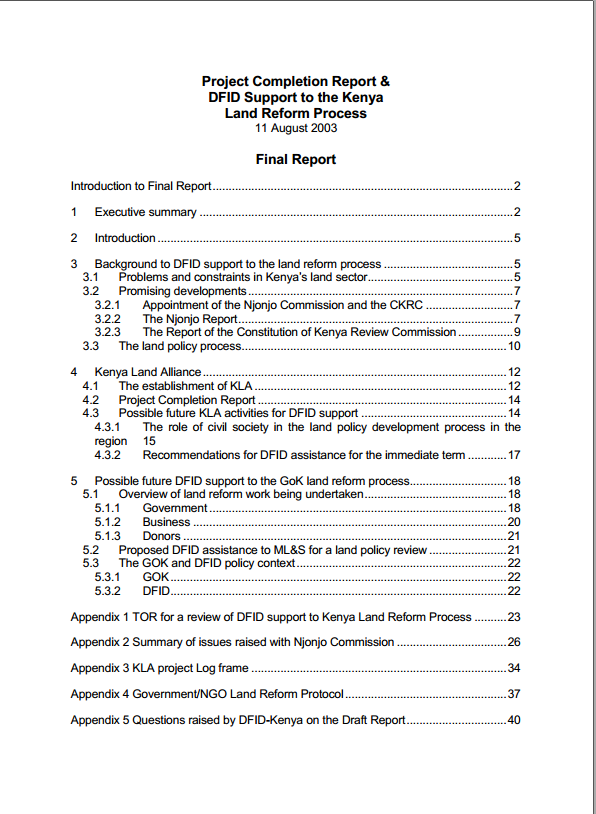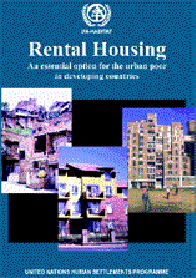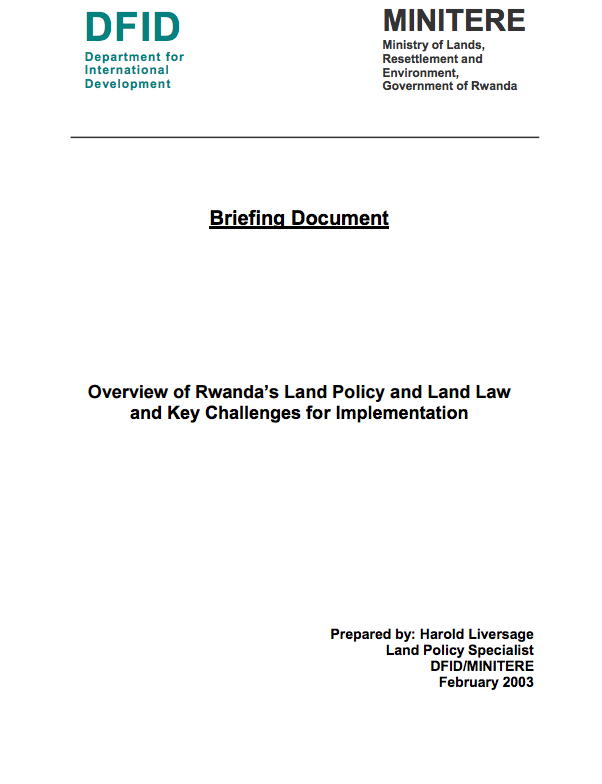DFID Support To Kenya Land Reform Process
The consultancy required a Project Completion Report of DFID’s support to the Kenya Land Alliance (KLA) and advice to DFID on possible future activities that would support pro poor land reform in Kenya. This final report has been prepared following the comments on the draft report by the Hon Kimunya, Minister of Lands and Settlement, and senior managers in the Ministry, the responsible DFID-Kenya officials and KLA’s Co-ordinator.











